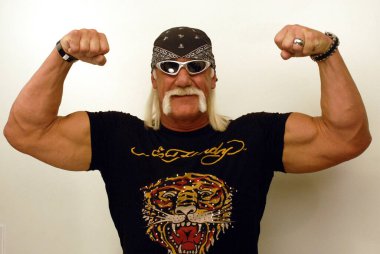
The Legacy of a Wrestling Icon
Tomorrow’s a new day. I have to be strong. These are the words of a caregiver overcome by anticipatory grief, resonating with the strength and sadness felt by so many when a legend like Hulk Hogan passes away. Hogan was not simply a wrestling legend for generations; he was a living, breathing superman, wrestling in the ring and, it appears, even more behind it.
Hogan’s last days were accompanied by severe health issues that very few outside his inner circle actually understood. His body had endured over 30 surgeries throughout his career, a bruised body from years of hard-hitting entertainment. Although wrestling can be fake, it’s not physically fake. There were predetermined outcomes to the matches, but the physicality was very real. He was always in some sort of pain. He paid for his success.
His wife, Sky Daily, was with him, sticking by him through to the end. She had soothed fans just a week prior to his death, stating, “No, he’s definitely not in a coma! His heart is strong, and there was never any lack of oxygen or brain damage. None of those rumors are true.” Alas, on July 24, everything went horribly wrong. Emergency responders were rushing to his Clearwater home for a cardiac arrest, and Hogan was declared dead at 71. Sky’s sorrow spilled onto Instagram the following day: “I wasn’t ready for this…and my heart is in pieces. He had been dealing with some health issues, but I truly believed we would overcome them. I had so much faith in his strength. I thought we still had more time.”
He’d been fighting some physical ailments, but I really did think we were going to fight our way through them. I had total belief in his strength. I figured we had time. Her words are characteristic of shock and denial which so very frequently accompany untimely loss. “This loss is sudden and impossible to process. To the world, he was a legend… but to me, he was my Terry. The man I loved. My partner. My heart.” She further thanked fans for Hogan’s dedication: “Hulk loved his fans so much and despite his growing physical discomfort, he did everything he could to show up, sign autographs, take photos, and connect with the people who supported him through it all. You meant everything to him.”
The loss of a celebrity like Hogan may be very personal to the fans. Such parasocial interactions—one-sided emotional relationships with public figures—are real and valid. Experts state that celebrities are really symbols of hope, courage, or even comfort during trying times. And when they pass away, it is a very personal grief, less the loss of a performer and maybe the loss of part of your own story, your memories, and sometimes your feeling of security.
The death of a celebrity can trigger symptoms of depression, such as persistent sadness, loss of interest in activities, and changes in sleep or appetite, according to one mental health expert. Social media makes it worse, as tributes and news coverage put the loss in the spotlight, making it more difficult to move on.
Sky’s case also witnesses a clear form of pain: anticipatory grief. This is the pre-loss grief, as people watch loved ones gradually slip away. Caregivers also feel a combination of hope, fear, and fatigue, occasionally sacrificing their needs last, holding up strong for partner and loved ones. As one of the caregivers testified, “I try to think as positive as possible. Because, if you go into that negativity … it eats you up.” Some take comfort in religion, quoting Sky’s own words of solace: “He was a believer in Christ, and I take comfort knowing his soul is at peace and he’s been welcomed home.”
How do fans and family members cope with such a tragedy? Experts recommend, “Accept your feelings. Grief is valid, even if you didn’t know the person.” Turn off social media if the reporting is too much. Get on with other people who share your memories, either online or face-to-face. Express your feelings through creative media, e.g., writing or painting, and don’t be afraid to seek expert guidance if the bereavement gets too much. For those most loved ones of the loss, self-care is essential: nourish your body with good food, rest, and allow yourself to feel whatever comes up, without judgment.
Hogan’s tale reminds us of the courage it takes to continue getting up, not only in the ring of life. When his wife and fans become accustomed to this new reality, the legacy that he will leave behind is not championships or slogans. Everything that it’s about is about perseverance, relationship, and having the courage to arrive each day, no matter how difficult.


